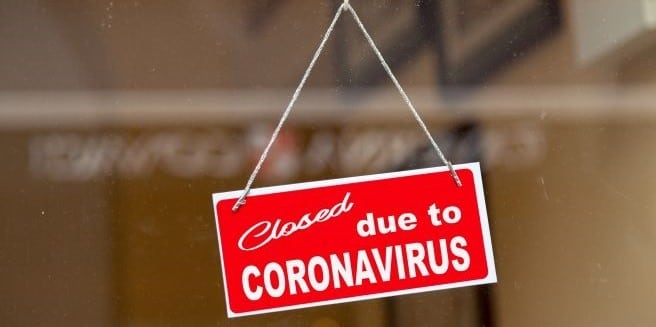COVID-19, more commonly known as coronavirus, first appeared in China towards the end of 2019. Since its outbreak, the virus has spread throughout China and worldwide. Today, known cases climb towards 200,000 and health concerns regarding those living in the affected areas are on the rise. The extreme concerns have resulted in several cities and countries down for an extended period of time and requiring citizens to stay at home to reduce the virus’s spread. To help with the spread of the disease, we compiled a list of five things to help slow down the spread of coronavirus, per the Center for Disease Control and Prevention (CDC).
- Stay Informed – With the country in a state of panic, it’s normal to see several pieces of information floating around, oftentimes conflicting. Make sure you are only getting your information from trusted sources like the World Health Organization (WHO) or the CDC. It’s also important to understand how the virus spreads. According to the CDC, the virus is thought to mainly spread from person-to-person through respiratory droplets from an infected person who coughs or sneezes near an uninfected person.
- Protect Yourself – Make sure you are taking precautions to protect yourself. Wash your hands frequently with soap and water for at least 20 seconds, especially after going to a public area, going to the bathroom or before eating. If you are out-and-about and don’t have access to soap and water immediately, use a hand sanitizer that contains 60% alcohol or more.
- Avoid Close Contact – Distancing yourself from others, especially infected people is a great way to stop or slow the spread of coronavirus. When meeting people outside the home in either business or personal gatherings, refrain from shaking hands, hugging or making contact. Instead, wave or nod to acknowledge the meeting without making physical contact.
- Stop the Spread of Germs – Make sure to always cover your mouth and nose when sneezing and coughing. Try to direct the cough into your elbow or shoulder instead of your hands. No matter what, always wash your hands thoroughly after sneezing or coughing.
- Stay Home – We understand that everyone is busy, and it seems impossible to stay home. However, staying at home and limiting contact with large groups of people is a great way to slow the spread.
If you have to travel for work or personal reasons and find yourself at the airport, we have five more ideas to keep you safe and coronavirus-free.
- Be Over-the-Top – It might seem silly or redundant, but health is the most important thing. Wash your hands after going through security screening, using the bathroom, baggage claim, ticket check-in and any other time you come in contact with many different airport surfaces at once. Also make sure to disinfect your luggage handles after someone else is in contact with it, or after you wash your hands.
- Stay Prepared – If you know you won’t have access to soap and water, make sure to keep a bottle of hand sanitizer nearby. That way after you board the plane or once the seatbelt-on sign appears, you are prepared!
- Don’t Stop Once the Plane Lands – You aren’t in the clear once the plane lands and you leave the airport. Make sure to continue washing hands and disinfecting luggage until you get the hotel or place you are staying at for the trip. Once there, take action to disinfect the areas there as well.
- Be Preventative – If you know you are traveling in the near future, get ahead of the virus. Take advantage of the several vitamin C supplement options on the market and take steps to boost your immune system. Also, make sure you have any prescription and over-the-counter medication you might need in advance.
- Stay Healthy – The last thing you want to do is get sick when coronavirus is spreading. Make sure to take regular steps to stay healthy. This means staying hydrated and eating right. For more information on how to stay healthy, visit the CDC website at cdc.gov.
As with any crisis, it is important to remain calm and rational. Take steps to protect yourselves and others, but do not panic. If you present symptoms of COVID-19 which include fever, coughing and trouble breathing, limit interaction with others and seek help from a medical professional.
For more information on the effects of coronavirus, click here.
